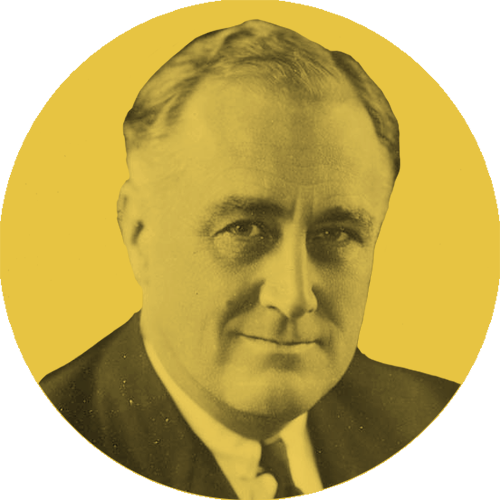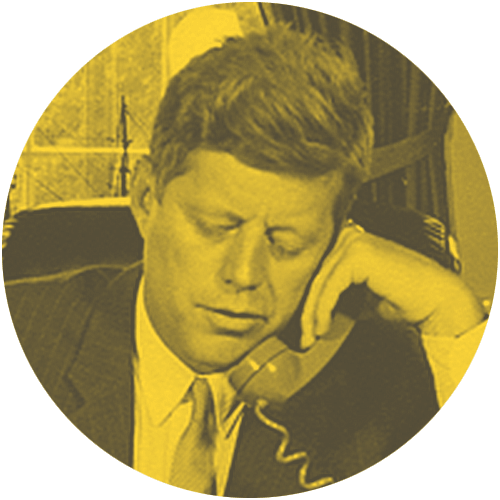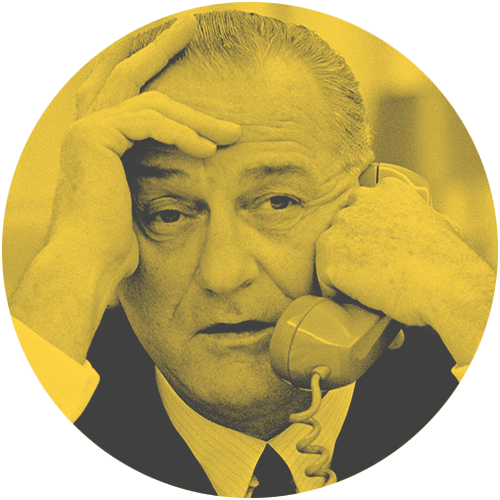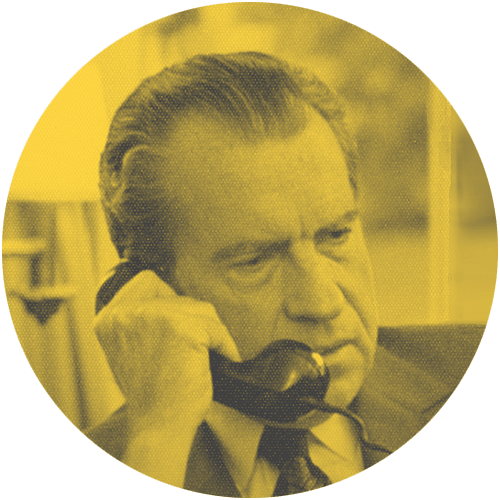Miller Center Studies on the Presidency is a new series of original works authored by
some of the top scholars working today. One facet of the series are essay-length,
ebook originals. Drawing on, and linking to, conversations in the acclaimed
Presidential Recordings Program, these works will commemorate and shed new light on
significant anniversaries in modern American history. Beginning with the debut
publication, The War Bells Have Rung: The LBJ Tapes and the Americanization of the
Vietnam War, all titles in this series will be included in the Presidential
Recordings Digital Edition.
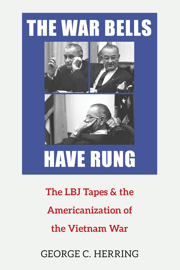
The War Bells Have Rung
The LBJ Tapes and the Americanization of the Vietnam War
George C. HerringIn the summer of 1965, President Johnson faced an agonizing decision. General
Westmoreland had come to him with a "bombshell" request for 150,000 more troops in
Vietnam. LBJ, who wished to be remembered as a great reformer, not as a war president,
saw the proposed escalation for what it was—the turning point for American involvement
in Vietnam. This is one of the most discussed chapters in modern presidential history,
but George Herring, the acknowledged dean of Vietnam War historians, has found a
fascinating new way to tell this story—through the remarkable legacy of LBJ’s taped
telephone conversations. A concise, inside look at seven critical weeks in
1965—presented as a Rotunda ebook linking to transcripts and audio files of the
original presidential tapes— The War Bells Have Rung offers both student and scholar a
vivid and accessible look at a decision on which LBJ’s presidency would pivot and that
would change modern American history.
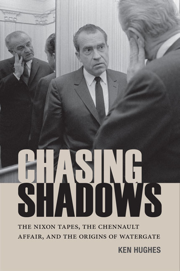
The Nixon Tapes, the Chennault Affair, and the Origins of
Watergate
Ken HughesThe break-in at Watergate and the cover-up that followed brought about the
resignation of President Richard M. Nixon, creating a political shockwave that reverberates
to this day. But Ken Hughes's unparalleled investigation of secret
presidential tapes has allowed him to unearth a pattern of actions by Nixon
going back long before 1972, to the final months of the Johnson
administration. Hughes identifies a clear narrative line that begins during
the 1968 campaign, when Nixon, concerned about the impact on his presidential
bid of the Paris peace talks with the Vietnamese, secretly undermined the
negotiations through a Republican fundraiser named Anna Chennault, and the
story goes far beyond what we think we know about Watergate.
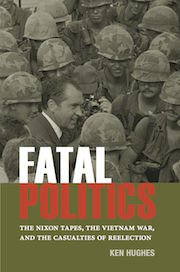
The Nixon Tapes, the Vietnam War, and the Casualties of
Reelection
Ken HughesIn Fatal Politics, presidential tapes expert Ken Hughes turns to the final
years of the war and Nixon's reelection bid of 1972 to expose the president's
darkest secret. While publicly President Richard M. Nixon promised to keep American troops in
Vietnam only until the South Vietnamese could take their place, in private he
agreed with his advisers that Saigon could never survive without American
boots on the ground. Putting his reelection above the lives of American
soldiers, however, Nixon kept America in the war into the fourth year of his
presidency. At the same time, he secretly negotiated a decent interval deal
with the Communists. Fatal Politics tells a story of political manipulation
and betrayal that will change how Americans remember Vietnam.




